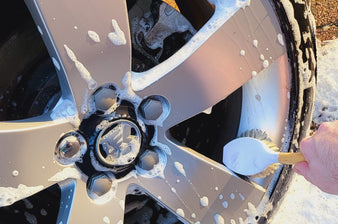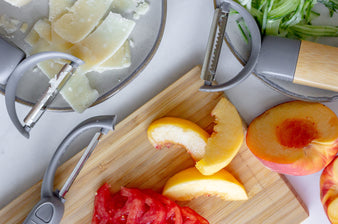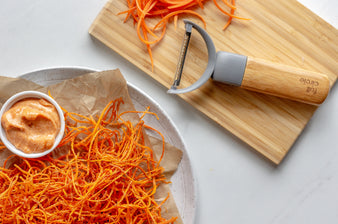A Better End of Life, For Good
On our mission to transform your kitchen for good, we didn’t just choose better materials, we also ensured that they do less end-of-life damage on our planet. For us, ‘good’ doesn’t just mean that the products work as they're intended, but also that they’re a better option long after being used to store your veggie scraps or preserve your freshly-baked apple pie. With our For Good products, you can say sayonara sustainably—here’s how.
What to Do at the End of the Product’s Life?
Our goal is to take the same home care products you currently have at home, and make them better for you, our planet, and future generations. Aware that busy lives and competing priorities sometimes get in the way of lifestyle changes, For Good puts a planet-positive spin on household disposables—no effort from you required.
We want to make it easy for you to make your daily activities a little more sustainable, so each product has been designed to be used just like its conventional counterpart. Whether you compost or dispose of these products in the trash can, they'll still have a better outcome.
For Good, Compost It
Using plant-based plastics like PLA and PBAT means that, unlike with conventional plastic, our zipper bags, trash bags, and food wrap will naturally biodegrade. Because they’re made of plants, they won’t take hundreds (or even thousands!) of years, nor will they release dangerous microplastics into the environment.
To help speed the process along, these products meet internationally-recognized standards for industrial compostaility. This means that, when exposed to the microorganisms, heat, oxygen, and moisture levels provided in municipal or commercial composting systems, these materials will quickly and safely break down. They’ll become water, carbon dioxide, and earth—without releasing dangerous toxins or microplastics.
Drop off any For Good products with your other compost to your local composting facility or partner. Looking for a new composting center? Find one near you here.
Quick Tip: Farmers markets often have a compost collection or recommendations on a local center, make friends with your local farmers!
Never Compost? These are Still for You
Wondering what to do if you don’t have any commercial composting facilities close by? Fortunately, even without carefully-controlled composting conditions, our biodegradable bags and food wrap are still a better option. Because more of us have made the switch to biodegradable and compostable materials, many landfills are starting to make conditions a little more compost-friendly.
Typically, landfills are non-aerobic environments. As composting requires oxygen in order to break materials down at faster speeds, more and more landfills are introducing oxygen to create environments to help support the process. Even without the addition of oxygen, our plant-based plastic products will still degrade naturally over time—and do so faster than conventional, petroleum-based plastics. They’ll also eventually become earth, not microplastics.
Similarly, because our parchment paper rolls and sheets aren’t treated with chlorine bleach, they also have a better fate after being discarded. Conventional, chlorine-bleached paper is associated with leaching dioxin, a persistent organic pollutant (POPs). Not only does this present several health risks like cancer, reproductive issues, and hormone disruption, but it can also infiltrate soil and water, while taking decades to degrade. Ours can be safely used and thrown away.
Restock Your Kitchen, For Good
At For Good, we think in terms of circularity—how our products are made, distributed, used, and disposed of. At each stage, we want to have the smallest impact possible. We’ve done the research, selected the best materials, and determined what happens to them after they’re used. All you have to do is restock your kitchen with better essentials, for good.




